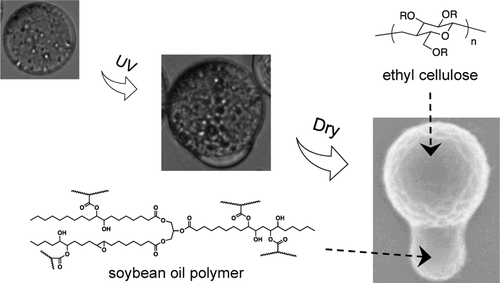当前位置:
X-MOL 学术
›
ACS Sustain. Chem. Eng.
›
论文详情
Our official English website, www.x-mol.net, welcomes your
feedback! (Note: you will need to create a separate account there.)
Scalable Synthesis of Janus Particles with High Naturality
ACS Sustainable Chemistry & Engineering ( IF 7.1 ) Pub Date : 2020-11-18 , DOI: 10.1021/acssuschemeng.0c04929 Yang Lan 1, 2 , Jingyu Wu 1, 3 , Syung Hun Han 3 , Sagar Yadavali 1, 3 , David Issadore 3 , Kathleen J. Stebe 1 , Daeyeon Lee 1
ACS Sustainable Chemistry & Engineering ( IF 7.1 ) Pub Date : 2020-11-18 , DOI: 10.1021/acssuschemeng.0c04929 Yang Lan 1, 2 , Jingyu Wu 1, 3 , Syung Hun Han 3 , Sagar Yadavali 1, 3 , David Issadore 3 , Kathleen J. Stebe 1 , Daeyeon Lee 1
Affiliation

|
Because of the increasing concerns about the ecological damage and negative health effects that may be caused by petrochemical-based microbeads, many countries are banning their use in a wide range of consumer products. One particular class of particles that may never reach their full potential because of such a ban is Janus particles, which are particles with two opposite properties. Despite significant progress in the scalable synthesis of Janus particles, most studies rely on petrochemical-based materials and solvents to enable their synthesis. In this report, we present a single-emulsion polymerization method for scalable synthesis of amphiphilic Janus particles with materials derived from plants. Soybean oil-epoxidized acrylate (SBOEA) monomers are polymerized in single-emulsion droplets of SBOEA, ethyl cellulose (EC), butyl acetate, and initiators that can be generated by either bulk or microfluidic emulsification, leading to the formation of amphiphilic soybean oil polymer/EC (SBOP/EC) Janus particles. Interfacial anchoring of the in situ-formed SBOP particles at the interface of the emulsion droplet plays a key role in the formation of the SBOP/EC Janus particles. Large-scale preparation of uniform SBOP/EC Janus particles is also demonstrated using a glass-silicon microfluidic device. Finally, the SBOP/EC Janus particles show potential to stabilize oil-in-water emulsions that can stay stable under flowing conditions.
中文翻译:

具有高度自然性的可扩展合成Janus颗粒
由于对基于石化的微珠可能造成的生态破坏和负面健康影响的关注日益增加,许多国家禁止在广泛的消费产品中使用它们。由于这种禁令而永远无法发挥其全部潜力的一类特殊颗粒是Janus颗粒,它们是具有两种相反性质的颗粒。尽管在Janus颗粒的可扩展合成方面取得了重大进展,但大多数研究还是依靠基于石油化学的材料和溶剂来进行合成。在此报告中,我们提出了一种单乳液聚合方法,可利用植物衍生的材料进行两亲性Janus颗粒的可扩展合成。大豆油环氧化丙烯酸酯(SBOEA)单体在SBOEA,乙基纤维素(EC),乙酸丁酯,引发剂可以通过本体或微流乳化法产生,从而导致两亲性大豆油聚合物/ EC(SBOP / EC)Janus颗粒的形成。在乳液滴界面上原位形成的SBOP颗粒的界面锚固在SBOP / EC Janus颗粒的形成中起关键作用。还证明了使用玻璃硅微流体装置大规模制备均匀的SBOP / EC Janus颗粒。最后,SBOP / EC Janus颗粒具有稳定水包油型乳液的潜力,该乳液可以在流动条件下保持稳定。在乳液滴界面上原位形成的SBOP颗粒的界面锚固在SBOP / EC Janus颗粒的形成中起关键作用。还证明了使用玻璃硅微流体装置大规模制备均匀的SBOP / EC Janus颗粒。最后,SBOP / EC Janus颗粒具有稳定水包油型乳液的潜力,该乳液可以在流动条件下保持稳定。在乳液滴界面上原位形成的SBOP颗粒的界面锚固在SBOP / EC Janus颗粒的形成中起关键作用。还证明了使用玻璃硅微流体装置大规模制备均匀的SBOP / EC Janus颗粒。最后,SBOP / EC Janus颗粒具有稳定水包油型乳液的潜力,该乳液可以在流动条件下保持稳定。
更新日期:2020-12-07
中文翻译:

具有高度自然性的可扩展合成Janus颗粒
由于对基于石化的微珠可能造成的生态破坏和负面健康影响的关注日益增加,许多国家禁止在广泛的消费产品中使用它们。由于这种禁令而永远无法发挥其全部潜力的一类特殊颗粒是Janus颗粒,它们是具有两种相反性质的颗粒。尽管在Janus颗粒的可扩展合成方面取得了重大进展,但大多数研究还是依靠基于石油化学的材料和溶剂来进行合成。在此报告中,我们提出了一种单乳液聚合方法,可利用植物衍生的材料进行两亲性Janus颗粒的可扩展合成。大豆油环氧化丙烯酸酯(SBOEA)单体在SBOEA,乙基纤维素(EC),乙酸丁酯,引发剂可以通过本体或微流乳化法产生,从而导致两亲性大豆油聚合物/ EC(SBOP / EC)Janus颗粒的形成。在乳液滴界面上原位形成的SBOP颗粒的界面锚固在SBOP / EC Janus颗粒的形成中起关键作用。还证明了使用玻璃硅微流体装置大规模制备均匀的SBOP / EC Janus颗粒。最后,SBOP / EC Janus颗粒具有稳定水包油型乳液的潜力,该乳液可以在流动条件下保持稳定。在乳液滴界面上原位形成的SBOP颗粒的界面锚固在SBOP / EC Janus颗粒的形成中起关键作用。还证明了使用玻璃硅微流体装置大规模制备均匀的SBOP / EC Janus颗粒。最后,SBOP / EC Janus颗粒具有稳定水包油型乳液的潜力,该乳液可以在流动条件下保持稳定。在乳液滴界面上原位形成的SBOP颗粒的界面锚固在SBOP / EC Janus颗粒的形成中起关键作用。还证明了使用玻璃硅微流体装置大规模制备均匀的SBOP / EC Janus颗粒。最后,SBOP / EC Janus颗粒具有稳定水包油型乳液的潜力,该乳液可以在流动条件下保持稳定。











































 京公网安备 11010802027423号
京公网安备 11010802027423号